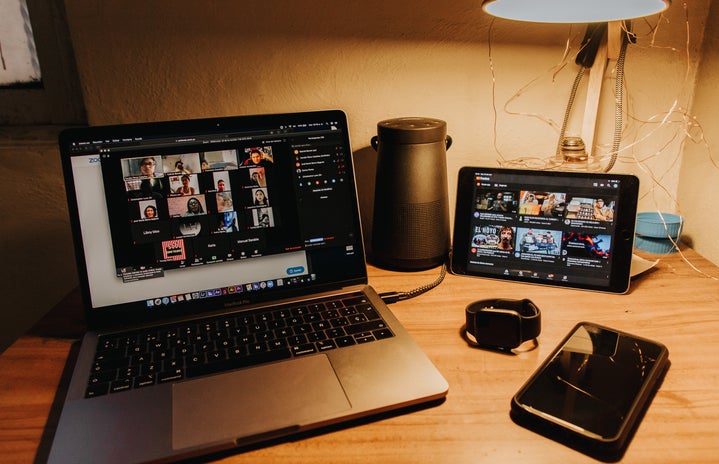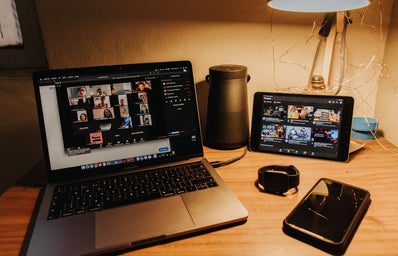The Covid-19 pandemic has been a major disruption in all facets of life but it has especially shifted the way everyone learns. Students, teachers, and educational staff continuously face major challenges as they work through this evolving pandemic.
According to the Department of Education, the pandemic has challenged and exacerbated the education system in many ways. It has widened pre-existing disparities in the system like those for students of color, those with disabilities, ESL (English as a second language) students and students in the LGBTQ+ community. The pandemic took many essential resources away from students such as counseling, a stable food source and, in some cases, forced unsafe home conditions onto students. The pandemic has been demanding for everyone but especially for those involved in the education system.
Students for Educational Advancement (SEA) is a newly founded club at American University whose mission is to create a space for those with education majors, minors, or an interest in education. The club would not exist without the efforts of Dr. Amaarah DeCuir, an Education Leadership scholar at American University’s School of Education (SOE).
In May 2020, the world was immersed in the Covid-19 pandemic and at the turning point of the modern civil rights movement due to the recent murder of George Floyd. DeCuir saw this as a moment to be a support system for students who were struggling to process the surrounding events. When asked what prompted the creation of this space, DeCuir said, “African American students at the graduate level who were saying they were hurting and wanted a space to talk about it.” She pointed out that SOE graduate students in particular would benefit from this support as a majority of the school at the graduate level is African American.
As the movement grew, the Dean of the School of Education, Cheryl Holcomb-McCoy, told DeCuir, “if you move it [the open discussion space] forward for grad, let me make sure there is similar support for undergraduate students.”
In June 2020, an email went out to education majors offering a “listening session and place to talk for SOE or students who need to talk.” Students embraced this opportunity and continued to talk throughout the summer. Then, the 2020-21 school year approached and DeCuir and others questioned, “Are students going to want this space once school comes back in session?” The answer was a definitive yes as students felt it was a deeply meaningful and a necessary space to talk not only about current events but also other issues in their own studies and the wider education community.
For faculty, however, it was also a safe space for professors to hear from students about what was working and what was not, especially as the whole year was conducted online. DeCuir emphasized this was a time where students talk and faculty just listen.
In Spring 2021, DeCuir and a group of students, now on the executive board of SEA, saw this growth and utility in the discussions as a moment to turn the space into an official club. With the deadline approaching, students constructed a club constitution and filled out the forms to register Students for Educational Advancement as an official organization at American University. While the club started as an exclusive opportunity for SOE students, DeCuir and the founding members expect to expand the club to those with vested interests and passions in education to find support through distance learning, racial injustice, and navigating hard topics.
This semester, SEA holds open discussions, mimicking the ones DeCuir started, and panels to promote antiracist and antibias teaching and advance education at American and in the larger community.
On Feb. 16, members of SEA hosted a conversation titled “Flip-Flopping Inconsistencies: A Discussion on Virtual and In-Person Learning.” Nicholas Caraballo, treasurer of SEA, opened the conversation stating that this is a safe space for individual experiences. Despite the heavy presence of those who study education academically, everyone in attendance had a valuable thought and experience to share.
During the conversation, attention was brought to the systemic problems that disproportionately affected students of color and low-income families during the pandemic. As Josiah Carolina, president of SEA, discussed, students in wealthy districts with better funding had the financial resources to help students who may not have had a computer or wifi. However, schools that didn’t have excessive funding, which usually serve high populations of low-income students and students of color, were not ready to help their students learn through the pandemic. Carolina stated that the pandemic has not only widened the learning gap but exposed the opportunity gap as well.
In addition to recognizing the challenges the pandemic has brought on, students also acknowledged that many of these problems existed before covid. While many of the social, racial and economic problems were heightened during covid, they were not singularly caused by it.
“It’s hard to fix the education system without fixing all the problems around it,” said Abigail Jackson, SEA’s events coordinator.
A question posed to the group by Gabrielle Levy, vice president of SEA, asked, “how has the change from online to in-person learning affected you?” Many shared deeply personal experiences or stories of friends but there was also a universal acknowledgment that the challenges faced during the height of the pandemic were already in place and just magnified by the unfortunate circumstances.
Mental health was also a large portion of the conversation because many people could connect to the sentiment that the pandemic demands better mental health efforts in education. Students communicated that the loosened structure of online learning at the beginning of the pandemic gave them time to prioritize themselves. However, as the pandemic progressed, there was less societal support for mental health needs. Many people pushed the return to school and it forced students, teachers, and educational staff to pick up the pieces and quickly patch them together as if nothing had happened.
The students at SEA felt that the mental health support was too short-lived and the pressures to get “back to normal” didn’t account for the absurdly abnormal circumstances students and teachers were facing and continue to face today.
“We have switched back and forth from virtual and online learning several times that now it feels like we are expected to be comfortable doing this almost effortlessly,” said Lindsey Carberry, a member of SEA. “It is not taken into account that these two different forms of learning have completely different demands and experiences, so the back and forth is not so easy, especially in the middle of a semester.”
Students in this discussion articulated the fact that people in education, students and teachers alike, need mental health support. It was emphasized that professional support for socio-emotional needs and overall patience is important for people as they work towards post-pandemic life.
As the group talked about how the education community can build itself back up from such tremendous losses, the underlying theme was, “why are we forcing the system to go back to normal?” Teachers are expected to care for their students’ mental health needs as well as their own with no formal training. Students are being forced to catch up and compensate for the time they missed during Covid but are given no resources to do so.
“Teachers have been dealing with these problems for decades,” Carolina said.
The discussion on virtual and in-person learning hosted by SEA provided an important space for students who care very deeply about issues in education. While the discussion wasn’t meant to brainstorm solutions or write policy, it did produce ideas on how education should move forward from an educated and information-based perspective.


